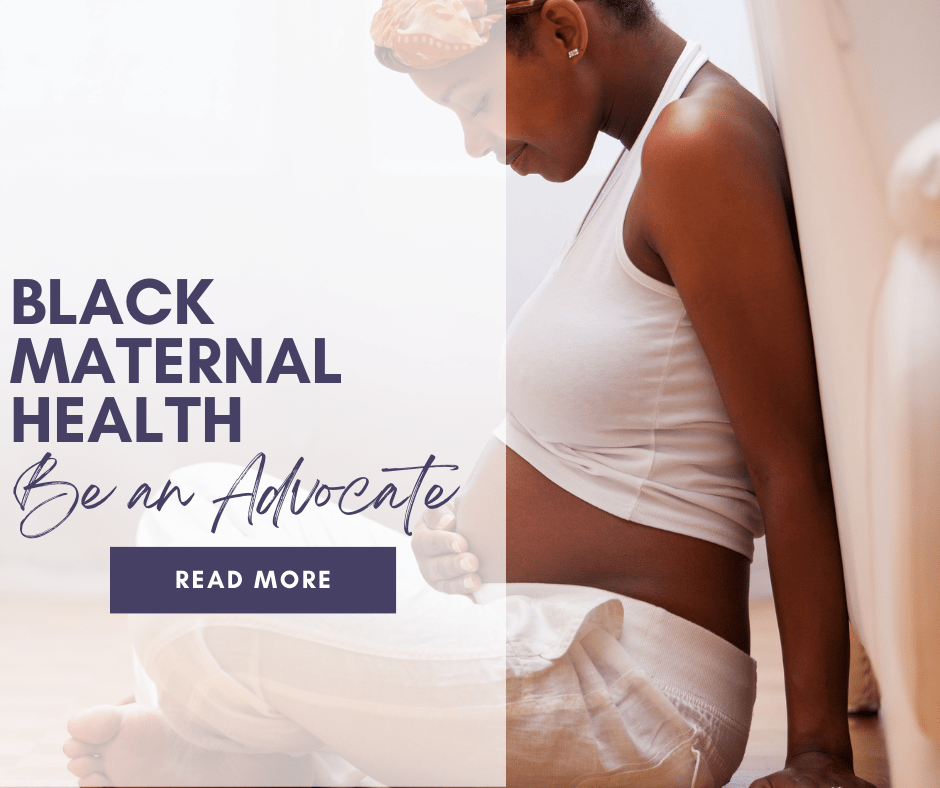Black History Month is when we reflect on our history and reignite our dedication to dismantling systemic barriers that prevent our nation from truly having justice for all.As a Black mother, I want to take this opportunity to highlight a significant concern in our community–Black Maternal Health.
According to Texans Care for Children Organization, “Black mothers are more than twice as likely to face maternal death or serious pregnancy complications compared to other Texas mothers.” Poor black maternal health care cuts across all socioeconomic levels regardless of income, education, marital status, or other health factors. Black women are known to have the highest maternal mortality rate in the nation. Women of color tend to have less access to high-quality reproductive health information, are discriminated against, and experience higher disrespect and abuse rates.
RELATED READING :: The Importance of Advocating for your Health as a Black Expectant Mother
The birth of a child is marked as one of life’s most incredible experiences. Somehow not all experiences are created equal. In 2020, social injustice was at the forefront. The pandemic also exposed a range of systemic challenges: lack of access to health care for people of color. Recently a local team held a virtual panel to discuss Black Maternal Health and Wellness. Part of the conversation was focused on the root cause, admitting disparities exist, and setting yourself up with a team of providers for your best care regardless of socioeconomic status.
I became a mother in 2016. Our first daughter was born by C-section. Approximately two days post-partum, I noticed swelling of my legs and feet. I dismissed the thought of a problem due to the level of fluid I took in post-operation. On a routine visit to our pediatrician, I noticed the swelling increased. As a new mom, I was unaware of what to do. I called my doctor to report my concern (as I left the hospital with no symptoms). I was told to monitor my symptoms and elevate my legs to reduce swelling. I was uneasy. I’m typically a healthy person, and I did not experience complications (minus the c-section) during pregnancy. I chose to search for my symptoms online and press for an appointment with my doctor. In the process, I learned that I had high blood pressure (due to fluid retention) and postnatal edema.
Through my experience, I learned to trust my instinct. I was persistent, had medical coverage, and had enough access to my provider to care for the situation.
- What if my outcome was different?
- What if I felt intimidated and downplayed my symptoms?
- What if I didn’t have a relationship with my provider?
- How can we improve Black maternal health as a nation?
Another concerning Black Maternal Health experience affected a college friend of mine. She recently experienced chronic pelvic pain and awful periods. In 2010 she was rushed to the hospital due to the pain. The Emergency Room ran tests and found nothing. They initially thought of fibroids. After her first child’s birth in 2012, she complained about pelvic issues and thought she had endometriosis. Her OB-GYN only performed the routine exam finding no symptoms. After her second child’s birth, her symptoms gradually got worse, and She was referred to a specific OB-GYN (that connects and supports patients). Her doctor performed a procedure and confirmed Adenomyosis and Endometriosis.
As we continue to navigate toward fair and equal treatment in healthcare, Black women should receive care that is respectful, culturally competent, safe, and of the highest quality.
Part of improving Black Maternal Health involves learning to advocate for ourselves.
If you feel that your provider is not listening to your concerns, reach out to local organizations to lead you toward competent care. To learn more about Black Maternal Health, visit:
• Black Mama’s ATX
• Black Mama’s Matter










